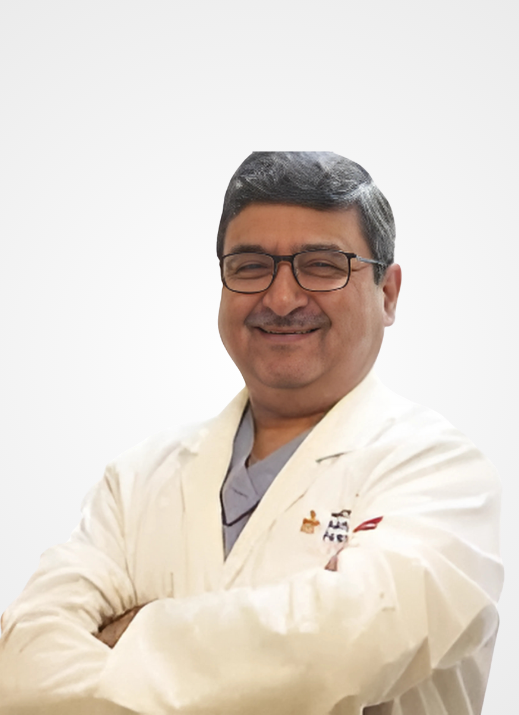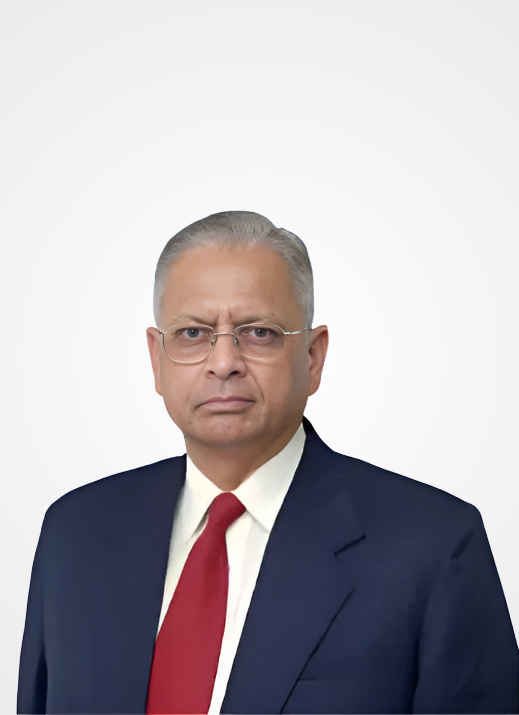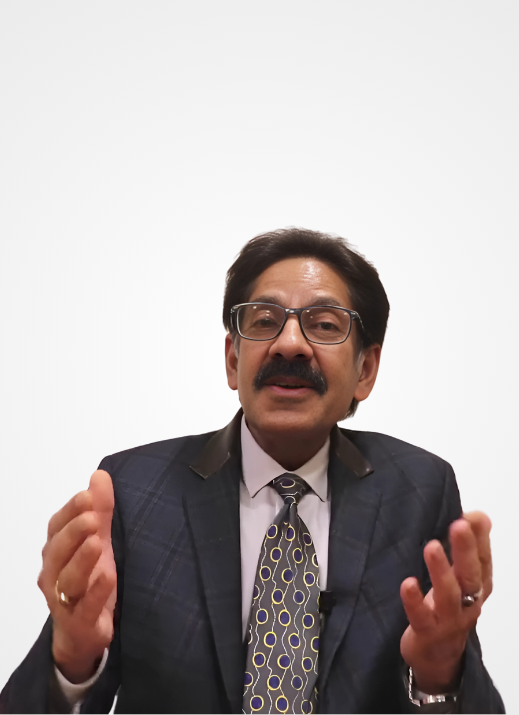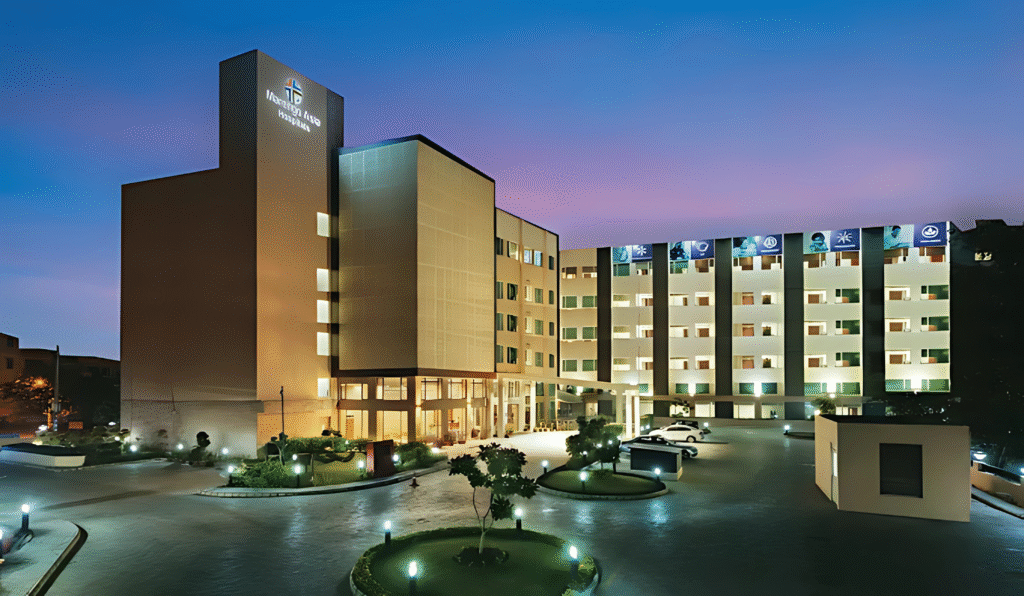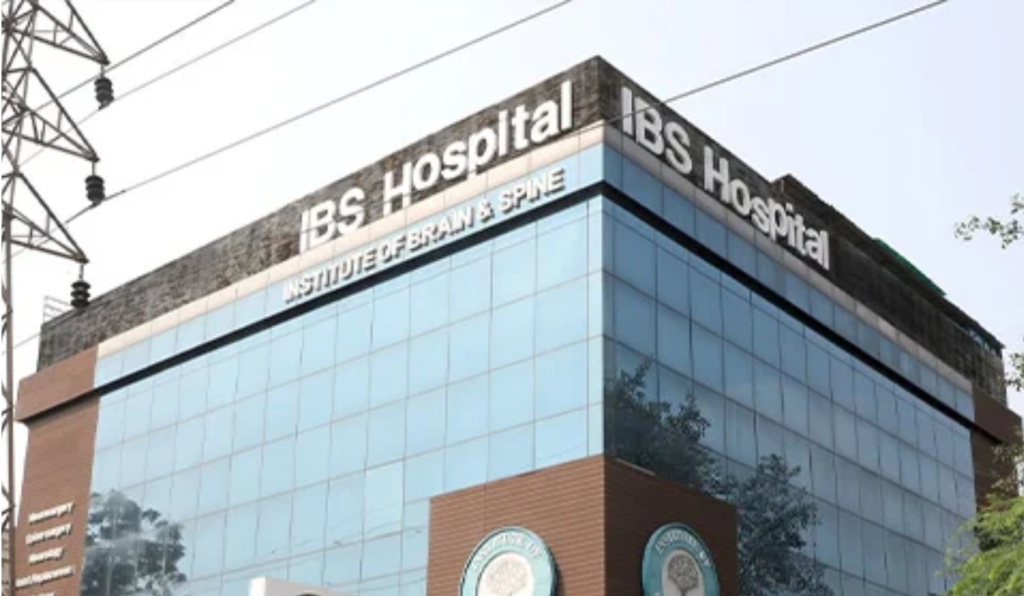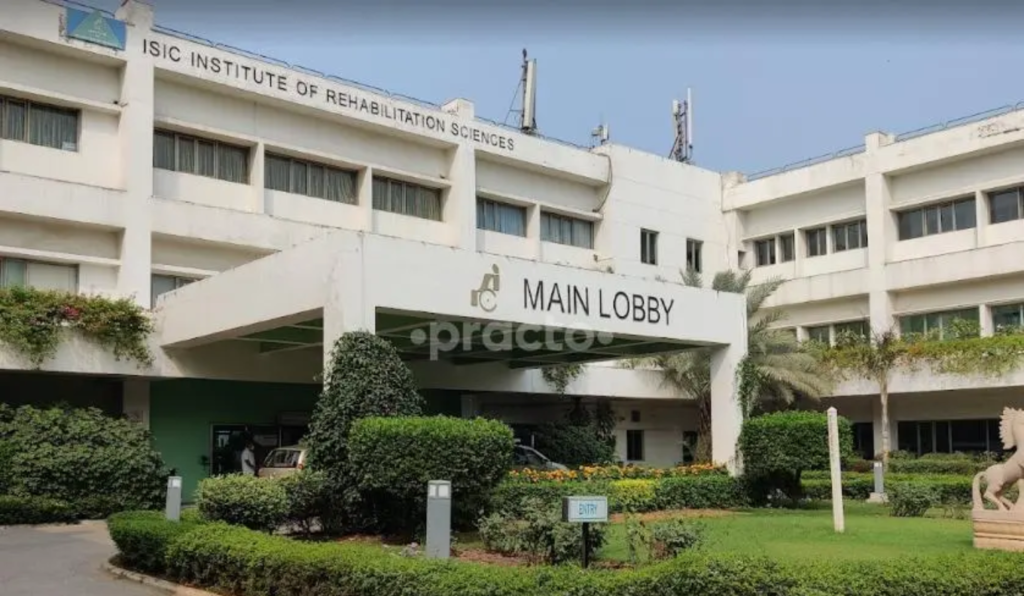Alzheimer’s Disease Treatment Cost in India

What is Alzheimer’s Disease?
Alzheimer’s disease is a progressive neurological disorder that causes brain cells to waste away (degenerate) and die. It is the most common cause of dementia, leading to a continuous decline in thinking, behavioral, and social skills. Memory loss is often the earliest sign. As it advances, individuals lose the ability to carry out simple tasks and may require full-time care.
How Does Alzheimer’s Disease Develop?
Alzheimer’s disease develops when abnormal proteins—amyloid plaques and tau tangles—accumulate in the brain, disrupting cell function and communication.
Amyloid plaques form between nerve cells, while tau tangles build up inside them, leading to cell death.
This begins in the hippocampus (memory center) and spreads to other brain areas.
Neurons shrink and die, resulting in brain atrophy.
The disease starts slowly, often with minor memory loss, and progresses over years to cause confusion, personality changes, and loss of independence.
Causes and Risk Factors of Alzheimer’s Disease
Alzheimer’s Disease is a progressive neurodegenerative condition that primarily affects memory, cognitive function, and behavior. It is the most common cause of dementia and gradually interferes with a person’s ability to carry out daily activities. The condition is characterized by the accumulation of amyloid plaques and neurofibrillary tangles in the brain, leading to nerve cell death. While the exact cause is not fully known, a combination of genetic, environmental, and lifestyle factors are believed to contribute.
Primary Causes of Alzheimer’s Disease
Amyloid Plaques: Abnormal protein fragments (beta-amyloid) build up between brain cells, disrupting communication.
Neurofibrillary Tangles: Twisted fibers of another protein (tau) accumulate inside cells, leading to structural damage.
Loss of Neuron Connections: Progressive breakdown of neuron networks causes brain regions to shrink and lose function.
Genetic Mutations: Early-onset Alzheimer’s is linked to specific gene mutations such as APP, PSEN1, and PSEN2.
Brain Inflammation and Oxidative Stress: Chronic inflammation and free radicals may contribute to nerve cell damage.
Risk Factors Contributing to Alzheimer’s Disease
Advancing Age: The greatest known risk factor; most individuals with Alzheimer’s are 65 years or older.
Family History and Genetics: Having a parent or sibling with Alzheimer’s increases the risk, especially if associated with the APOE-e4 gene.
Cardiovascular Health: High blood pressure, diabetes, obesity, and high cholesterol can affect brain health and increase risk.
Head Trauma: Severe or repeated head injuries are associated with a greater chance of developing Alzheimer’s later in life.
Lifestyle and Cognitive Engagement: Lack of physical activity, poor diet, smoking, and limited mental stimulation are linked to higher risk.
Symptoms of Alzheimer’s Disease
Alzheimer’s is a progressive neurodegenerative disorder leading to memory loss and cognitive decline.
Memory loss disrupting daily life
Difficulty planning or solving problems
Confusion with time or place
Trouble understanding visuals or spatial relationships
Personality or behavior changes, such as mood swings
Types of Alzheimer’s Disease
Occurs before the age of 65, often between 40–60. It’s less common but tends to progress more quickly. It may have a stronger genetic link, especially involving mutations in specific genes like PSEN1, PSEN2, or APP.
The most common type, typically affecting people over 65. It develops gradually and is associated with age-related changes in the brain and genetic factors like the APOE-e4 gene.
A rare inherited form, usually causing early-onset symptoms. It runs strongly in families and is almost always linked to specific genetic mutations.
Includes Atypical Alzheimer’s (such as posterior cortical atrophy), where symptoms like visual processing issues appear earlier than memory loss.
Sarcomas are extremely rare prostate cancers that originate in the soft tissues of the prostate rather than glandular cells. These include:
Leiomyosarcoma (affecting smooth muscle tissue)
Rhabdomyosarcoma (affecting skeletal muscle tissue)
Which Type of Alzheimer’s Disease is the Most Dangerous?
Early-onset Alzheimer’s is typically more aggressive and progresses faster, especially in familial cases, making it the most dangerous form despite being less common.
Why Choose India for Neurology and Neurosurgery Treatment?
India has become a global hub for advanced neurology and neurosurgery treatments, offering a unique combination of cutting-edge medical technology, experienced specialists, and compassionate care. Patients worldwide travel to India not only for high-quality treatments but also for the affordability and holistic healing approach that complements neurological recovery.
India is home to board-certified neurologists and neurosurgeons trained at top global institutions. They have extensive experience handling complex conditions such as brain aneurysms, epilepsy, multiple sclerosis, Parkinson’s disease, and more. Their deep expertise ensures accurate diagnosis and effective treatment plans tailored to individual needs.
Indian hospitals are equipped with the latest neurological diagnostic and treatment technologies, including:
Functional MRI and PET scans
Intraoperative neuro-navigation
Robotic-assisted neurosurgery
Deep Brain Stimulation (DBS) systems
These advancements significantly enhance precision in both surgical and non-surgical neurological care.
One of the biggest advantages of choosing India is the affordability. Treatment costs in India can be 50–70% lower than in the US, UK, or other Western nations, without compromising on quality. Pricing is often transparent, and patients receive clear breakdowns before the treatment begins.
Neurological recovery often requires long-term rehabilitation. Indian hospitals offer integrated neuro-rehab services including:
Physiotherapy and occupational therapy
Speech and cognitive rehabilitation
Pain and stress management programs
This ensures patients receive holistic care throughout their recovery journey.
Unlike in many countries where wait times for neurological or neurosurgical consultations and procedures can stretch for weeks or months, Indian hospitals offer quick scheduling and immediate access to treatment, especially critical in time-sensitive cases like strokes or brain tumors.
India is a global leader in medical tourism, offering:
✔ Dedicated international patient coordinators
✔ Medical visa assistance for easy travel
✔ Affordable accommodation & travel support
✔ Multilingual staff, including English-speaking doctors
This ensures a smooth and hassle-free experience for foreign patients traveling to India for treatment.
Different Types of Treatments for Alzheimer’s Disease
Alzheimer’s Disease is a progressive neurodegenerative disorder that primarily affects memory, cognition, and behavior. While there is no known cure, treatments available in India aim to slow disease progression, enhance quality of life, and manage behavioral and psychological symptoms through a multi-disciplinary approach.
How It Works:
Drugs such as cholinesterase inhibitors (donepezil, rivastigmine) and memantine help regulate neurotransmitters in the brain, improving memory and cognitive function.
When It’s Used:
From the early to moderate stages of Alzheimer’s to manage memory loss and cognitive decline.
Benefits:
Slows cognitive deterioration
Helps maintain independence
Manages mood and behavior
How It Works:
Structured mental activities and memory exercises help maintain or improve brain function and slow cognitive decline.
When It’s Used:
Early to mid-stages of Alzheimer’s, or when mild cognitive impairment is present.
Benefits:
Enhances memory retention
Delays mental decline
Improves focus and orientation
How It Works:
Therapy focuses on managing agitation, aggression, hallucinations, and depression using behavioral modification techniques and supportive communication.
When It’s Used:
In moderate to advanced stages to help reduce distress and improve quality of life.
Benefits:
Reduces problematic behaviors
Improves patient-caregiver interaction
Promotes emotional stability
How It Works:
Therapists assist patients in adapting their environment and routine to maintain daily functioning and safety.
When It’s Used:
Throughout all stages of the disease to support independence and reduce injury risks.
Benefits:
Enhances daily living skills
Promotes safer environments
Reduces caregiver burden
How It Works:
Customized diets enriched with brain-supportive nutrients, including omega-3 fatty acids, antioxidants, and vitamins, to support cognitive health.
When It’s Used:
Ongoing therapy from early diagnosis to advanced stages to support overall brain and body health.
Benefits:
Slows mental decline
Supports immune and brain function
Promotes general well-being
Different Procedures for Alzheimer’s Disease
Though Alzheimer’s is primarily managed through medications and therapy, advancements in neurology have introduced some innovative and supportive procedural options that are now being explored or offered in advanced centers in India.
How It Works:
Unlike other neurological conditions, Alzheimer’s does not typically require invasive brain surgeries. Management is focused on therapy and medication.
When It’s Used:
Across all stages for conservative and non-invasive disease control.
Benefits:
No surgical risks
Suitable for elderly patients
Maintains quality of life with fewer complications
How It Works:
Mild electrical impulses are delivered to targeted brain regions to improve cognitive performance and reduce agitation in advanced cases.
When It’s Used:
In selected clinical trial cases or advanced stages when medication alone is insufficient.
Benefits:
Enhances cognitive clarity
Reduces behavioral disturbances
Non-destructive, reversible therapy
How It Works:
Experimental methods involve modifying genes linked to Alzheimer’s (e.g., APOE4) to alter disease progression or risk.
When It’s Used:
Under clinical trials or in patients with a strong genetic predisposition.
Benefits:
Targets root causes
May delay or prevent progression
Holds promise for future therapies
How It Works:
Interactive robotic platforms assist patients with memory exercises, social engagement, and cognitive games tailored to Alzheimer’s progression.
When It’s Used:
In early to moderate stages for cognitive stimulation and emotional support.
Benefits:
Increases engagement
Consistent and structured therapy
Enhances quality of life
How It Works:
Includes non-surgical interventions like transcranial magnetic stimulation (TMS) or ultrasound-based neuromodulation to stimulate brain regions.
When It’s Used:
For cognitive decline in mild to moderate Alzheimer’s where medication alone isn’t sufficient.
Benefits:
No incisions or anesthesia
Enhances neural connectivity
Suitable for fragile or elderly patients
Best Doctors for Alzheimer's Disease Treatment in India
Best Hospitals for Alzheimer's Disease Treatment in India
Med Travel India Offerings
How does Med Travel India help you?
Med Travel India is dedicated to assisting international patients in accessing high-quality prostate cancer treatment in India. From selecting the best hospitals to providing logistical support, we ensure a seamless medical journey. Our team works closely with top oncologists and healthcare facilities to offer personalized treatment plans tailored to each patient’s condition.
We take care of every aspect of medical travel, allowing patients to focus solely on their recovery. Below is a list of services provided by our company:
Services offered by Med Travel India

Seamless Planning for Your Medical Journey
Before you even arrive, we take care of all the groundwork. From connecting you with top specialists to ensuring all necessary medical evaluations are completed, we make your journey stress-free. Our goal is to provide clarity and comfort before your treatment begins.
- Free Medical Consultation
- Personalized Treatment Plan
- Estimated Cost & Duration
- Visa Assistanc
- Second Opinion Service
- Pre-Arrival Coordination
Worry-Free Travel & Comfortable Stay
We ensure that your journey to India is as smooth as possible. From booking your flights to arranging a comfortable stay near your hospital, we handle everything so you can focus on your health.
- Flight Booking Assistance
- Accommodation Booking
- Airport Pickup & Drop
- Language Interpretation Services
- Local Transport Arrangements
- Currency Exchange Support


World-Class Medical Care, Personalized for You
We ensure that your medical treatment is well-organized and efficient. Our team works closely with hospitals to facilitate smooth admissions, consultations, and procedures, ensuring you receive top-quality healthcare.
- Priority Appointment Scheduling
- Direct Hospital Admission
- Specialist Doctor Assignment
- Pharmacy & Medical Supplies
- Hospital Admission & Discharge Support
- 24/7 Customer Assistance
Continued Support for a Speedy Recovery
Your health journey doesn’t end after treatment. We provide post-procedure assistance to ensure a smooth recovery, whether you stay in India for rehabilitation or return home.
- Post-Surgical Care Coordination
- Rehabilitation & Physiotherapy
- Virtual Doctor Consultations
- Diet & Lifestyle Guidance
- Extended Stay Arrangements
- Post-treatment Medical Supplies


Beyond Healthcare, A Comfortable Experience
We offer additional services to make your stay in India comfortable and enriching, ensuring that your well-being is cared for beyond the hospital.
- Medical Insurance Settlement Help
- SIm Card Assistance
- Customized Sightseeing Tours
- Medical Document Assistance
- Personalized Assistance for Family Members
- Concierge Services
Reviews From Our Patient




